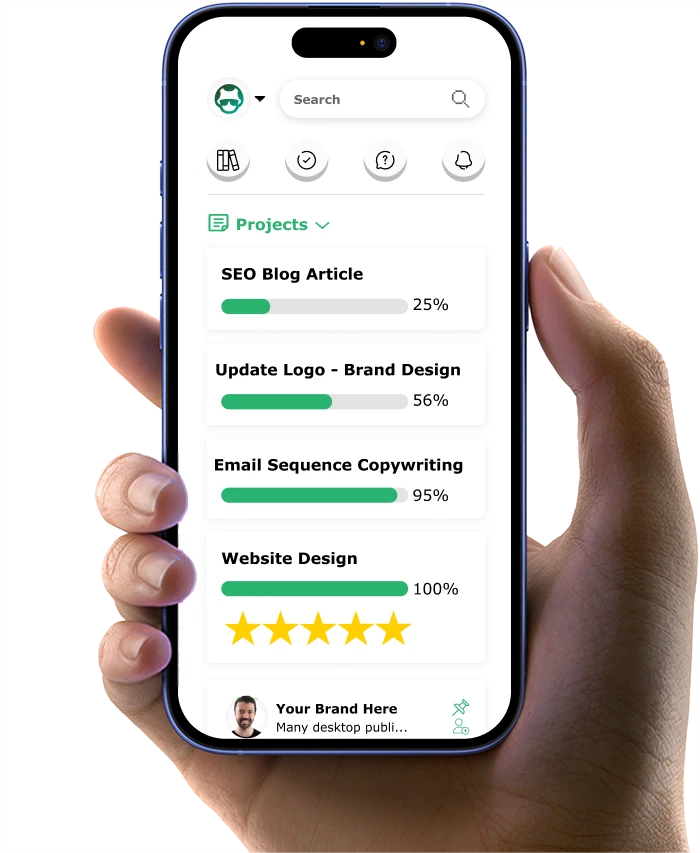What Is “AMP”? (And How Can It Grow Your Mobile Leads)

If you're over 30, you likely recall a time before smartphones. Remember what it was like trying to read the news or an article on your tiny little screen?
Today's generation would find the entire experience frustrating and bizarre.
Back then, all we could do was hope that something better might come along. And it did—quickly!
Smartphones and broadband mobile connections to the internet totally changed the ballgame.
And somehow, things just keep improving. Now, we have 4G connections, smartphones faster than desktop computers and ... AMP.
So, what exactly is AMP? And can it improve your marketing efforts?
Consider this your soup-to-nuts guide. I'll cover everything you'll need to know (plus a little extra).
Let's jump right in and get started with the basics:
What is AMP?
Accelerated Mobile Pages (AMP) is a project developed and launched in 2005 by Google and Twitter. It aims to make mobile pages load super fast.

Essentially, it is a form of stripped down HTML code which allows mobile devices to load pages faster. It does this by eliminating any unnecessary multimedia or rich media items and codes.
More importantly, it is an open source project. As such, it has a lot of open elements that can be addressed and developed by enthusiasts and fans.
What makes AMP so fast?
Think of AMP as HTML on a strict diet. Only in this case, instead of cutting carbs and fats, we are eliminating unnecessary code. For instance, JavaScript is not allowed at all on accelerated pages.
In addition, AMPs are also cached on Google servers. This means that they are NOT running from the client's server.
Pages stored and cached by Google’s servers are delivered locally to those who access them, making them even faster.
How are the AMP pages built?
There are three elements specific to this project: AMP HTML, AMP JS, and AMP Cache.
As I have already mentioned, these pages do not support JavaScript. However, there is a type of JS that is available: a featured library that contains only the basic codes needed to render pages fast.
The AMP HTML code comes with a series of restrictions as well, all implementedfor speed and performance.
Finally, the AMP cache is the third cornerstone of the project. It enables users to access locally stored and cached AMP pages.
How can I publish AMP pages?
This is the first question that will come into your mind as you read about the project. Is it hard? Is it easy? How can I do it?
Don't worry. Whether you're using a CMS or not, it's doable.
But if you are using a CMS, it's easier.
Each of the most popular content management systems has featured AMP plugins. Once installed, they will automate the entire process.
Here’s a full list with the appropriate links.
Since Wordpress is the most popular CMS, there is a good chance you will need this plugin. It will help you set up your AMP pages and get started with their delivery.

To install the plugin, you can either download it via the above link and upload it on your server or you can install it from the WP Dashboard.
If you're not using a CMS, things could get a little bit complicated. Because you will need to build the pages yourself, you'll need some knowledge on basic HTML, CSS and JavaScript coding and a basic text editor to write down the code.
Fortunately, there are some resources and tutorials you can download from the official AMP website. They'll guide you through the entire process.
Why is AMP important for marketing?
Two reasons: SPEED and compatibility.
As a business owner, you face fierce competition. You shouldn't ignore the importance of mobiles for your strategic marketing campaigns.
Your audience is right there and they're more tied up to their smartphones than ever. They read their news, communicate with friends, navigate the internet, learn new things and shop from their mobiles.
If you aren't able to get their attention, it would be as if you didn't exist.
Why is speed important?
Google has indicated that page load speed is one of the most important ranking factors according to their algorithm.
Also, according to stats, people tend to abandon pages that load in more than 3 seconds. As a matter of fact, they expect them to load in 2 seconds or less.
AMP pages solve this issue and allow you to deliver super-fast content and thus, keep your audience pleased.
How does compatibility affect the user experience?
Considering that at least half of your customers are accessing your content from mobile devices. It’s important to be able to deliver pages that are mobile friendly and mobile responsive as well.
Mobile devices in general and smartphones, in particular, are not all alike. There are different resolutions, different screen sizes, and different operating systems.
It is important that your pages are responsive and readable on any type of mobile device. This is yet another issue that is automatically solved by the AMP project.
What do others have to say about AMP?
Before writing this peace, I tried to contact several other marketers to find out how they feel.
Here’s the response I received from Julian Gottke, Marketing lead at quintly.com:
“After the mobile first algorithm change AMPs are not just a nice thing to have but a must have for everyone in the digital sphere. For us at Quintly, we see a continuous increase in people reading our blog on a mobile device. Here, AMPs are not only better from a UX perspective but also performance wise”.
What about the banners, logos and other visual content?
Well, if it is HTML5 doable, then you should do it right away.
These kind of static or animated banners are not only clean but also easy to embed into your posts and articles. As a consequence, they're readily deliverable to mobile devices.
HTML5 is responsive, its code is natively recognized by all browsers and at the same time, it can be cloud stored. The final work is just embedded into a page and not locally served to the general audience.
How do you create them?
Things are quite easy nowadays. Thanks to a whole bunch of apps and tools recently developed, even those lacking design skills can handle it.
I, for instance, use Bannersnack as my main design tool. It’s easy to work with, and it features an impressive gallery of templates and stock images you can use freely.
Also, it stores all your banners and other types of visuals in the cloud and therefore, it should be easy for you to deliver them to your audience.
Final thought: Can you disable it?
Is it easy to disable AMP? How can you do it and ultimately, why would you even consider such an option?
Well, according to Kinsta, there are people who want to disable AMP, at least for a while and see what happens next.
They are referring to an instance when leads dropped after installing the plugin. In the case study they shared with us, it seemed like a good idea to get back to the old, traditional channels.
The fact is that AMP does not work for everybody. In that particular instance, it didn’t serve the marketing purposes of a website that didn’t deliver any kind of news flux and did not engage in content marketing.
The problem is that disabling AMP requires a lot of work. Fortunately, the aforementioned source provides a full guide on how to do this that should serve you well.
Conclusion
While not infallible, AMP is the next big thing in content creation. And it's about to revolutionize mobile marketing.
While it’s not yet imperative to try it, I recommend it. It facilitates the transfer of the information between the marketer and the audience.
Plus, I think it's about to blow up. You're not going to want to ignore this in the next couple of years.
Have you tried AMP yet? What are your first impressions of it?
Want more sales? Download my [thrive_2step id='18964']11-Point Perfect Sales Funnel Checklist[/thrive_2step] or invest in our Sales Funnel Blueprint.
About the Author: Robert Katai is a digital marketer, blogger, and content marketing manager at Bannersnack. Passionate about digital marketing and content strategy. Featured on Adweek, Content Marketing Institute, TNW and many more. You can check out his blog on www.robertkatai.com













